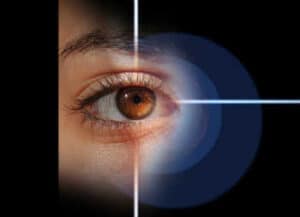
How tears work
To understand why dry eyes occur, you need to know how the tear system works in the body. Tears are made up of a miraculous combination of water (for moisture), oils (lubrication), mucus (even spreading), and antibodies (that keep away infection). Sometimes this combination can get off balance. Tears production responds to signals from the nervous system.
How do dry eyes feel?
This seems like an obvious answer, but dry eyes don’t just feel dry. They can also be red, blurry, be sensitive to light, itch, or have a gritty feeling. In a confusing situation, sometimes dry eyes produce far too many tears. This happens because low moisture bothers the eyes. In response, the nervous system sends a HELP signal for more lubrication. Next, the body sends a flood of tears—but these emergency tears are made up mostly of water and don’t have quite the same balance as normal tears. As a result, the eyes still suffer from dry eye symptoms.
How do I treat my dry eyes?
There are several options to treat your dry eyes. The most common and low-cost method is by using artificial tears. Eye drops or eye ointments are available at your local convenience shop or grocery store and can work well on occasional or chronic dry eyes. Check with your eye doctor to ask what eye drops they would recommend. It is important to know the type of eye drops you are using because some are specifically formulated to work well with contacts (or no contacts).
Arrange your consultation
For more information about treatment for your dry eyes, call the Eye Care Institute today. You can reach our office by calling (707) 546-9800. We look forward to assisting you!
